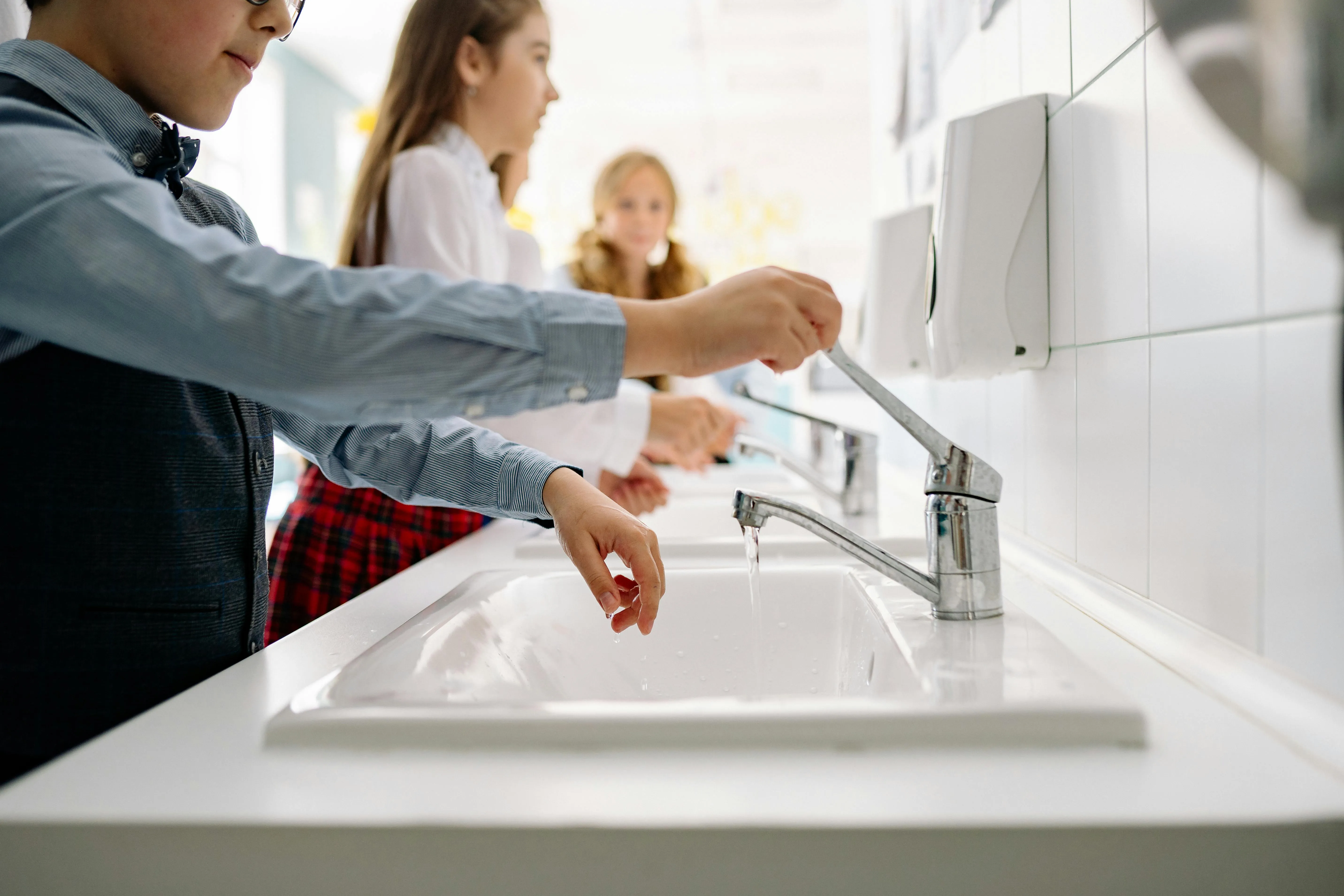

My child is starting school but isn't toilet trained - what should I do?
School teachers are used to helping new entrants get to the toilet on time and dealing with the occasional toileting accident. But some children will need assistance well past their first few months at school, and it's important that this is dealt with in a sensitive way.
What should schools be doing?
Schools have a duty of care to their pupils and all children, including those with disabilities, should be able to use school toilets comfortably and easily.
This means
- school toilets should be well-maintained and easy to use. Cubicle locks need to be child-friendly and fully functional, as do taps, flushes and cisterns.
- children shouldn't be denied access to toilets during class time. This can cause all sorts of problems including soiling and wetting accidents, or withholding, which may lead to constipation, urinary tract infections, dehydration, lack of concentration, poor school performance, and anxiety.
- schools will either have a specific toileting policy OR a health, safety and wellbeing policy. These are likely to include reference to individual care plans and IEPs for some children, to be worked out between yourself and the teaching staff.
What should parents do?
- Let the school know about specific toileting issues when you enrol your child. Or if your child develops a problem at school, let them know as soon as you can.
- Tour the toilets to make sure they’re clean and accessible. If toilets are dirty, unappealing and in bad order, children will be reluctant to use them.
- Check with the school that your child can use the toilet at any time, and make sure your child knows this too.
- Check whether the school has a specific toileting policy. This will flag any issues you may need to raise with the school prior to your child starting.
- Arrange a meeting with your child’s teacher to discuss appropriate strategies to help your child achieve toileting success. Many children are embarrassed or worried about interrupting the teacher during class. One strategy is to have a pre-arranged system, such as a toilet signal, or a magnet that can be put on a whiteboard, that would let the teacher know what your child is doing without disrupting class. Note any toileting strategies in your child's IEP if they have one (see our article all about IEPs).
- Find out if your child is eligible for teacher aide assistance, from the Ministry of Education’s School High Health Needs Fund. This allows schools to employ teacher aides for children needing extra assistance with, for example, toileting.
- Don’t hesitate to discuss any red flag issues with your school, such as locked toilets during class time, or badly maintained toilets, or a reluctance to develop individualised toileting plans to meet specific children’s needs. New Zealand schools have a duty under the Education and Training Act 2020 to be as inclusive as possible, which includes ensuring all children can access toilets appropriately.
- Consider leaving a change of underwear or clothing somewhere discreet in their backpack or classroom, so that they can grab it if they need to, without drawing attention from their classmates.
Toilet etiquette, boundaries and safety
At school, your child will often use the toilet at the same time as other children, so it's important they learn (as early as possible) what's appropriate behaviour while using public facilities, including at school, in the park or in a shop.
Some children need to have consistent daily reminders about the difference between public and private activities. For example, if a child needs to do a poo, they should do so with the door shut in a toilet cubicle by themselves, or with a member of teaching staff to assist them. If a child is using the urinal, they should know basic rules around modesty, such as not looking or commenting on other children’s genitals, and only dropping trousers as far as they need to go – not to the toilet floor.
Especially when using toilets shared by adults, children should be reminded not to talk to strangers. If anyone using the toilet makes them feel uncomfortable in any way, they should leave and find an adult they trust and tell them about it immediately.
Finally, remind children how important it is to stay safe and healthy, and that they wash their hands well after every trip to the toilet.
For more information check out our other toileting articles, or contact the IHC Library on 0800 442 442 or email librarian@ihc.org.nz to learn more about the resources listed below.
Helpful materials
A range of resources offering guidance and strategies for effective toilet training and managing bowel and bladder health in children.
Children's Books offering guidance for parents, professionals, and carers.



